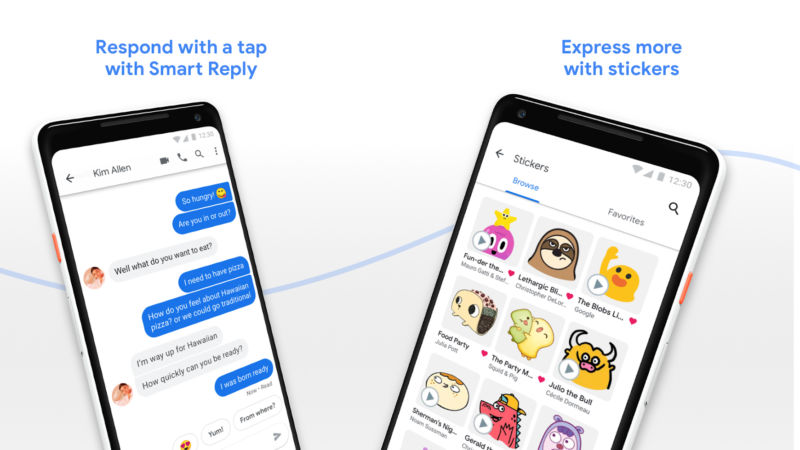Source: Ars Technica

Enlarge / Google's "Messages" app.
It's time for the annual reshuffling of Google's messaging strategy! The latest news comes to us via The Verge, which has a big feature detailing Google Messaging Strategy 2019: taking RCS back from the carriers. Google now wants to run an RCS service (an upgrade to the aging SMS system) itself, with the service first launching in France and the UK later this month. RCS will be something like Google's ninth instant messaging platform, after Google Talk, Google Voice, Google Buzz, Google+ Messenger, Hangouts, Spaces, Allo, and Hangouts Chat.
Last year's Google messaging reshuffling saw the company kill Google Allo (AKA Google Messaging Platform 2016) and focus on Google Messages (the company's SMS client) in an effort to promote RCS. RCS, or Rich Communication Services, is a planned upgrade of the carrier-owned SMS service, and it has been around as a GSMA (the worldwide mobile network trade body) standard for several years now. RCS' goal is to bring very basic instant messaging features to carrier messaging—things like presence information, typing status, read receipts, and location sharing. Like a real chat app, RCS messages are sent over your data connection, and messages, photos, and videos all have bigger sizes.
In last year's plan (and every other plan involving RCS), the rollout was up to carriers. Every individual carrier on Earth had to individually go out and upgrade their SMS infrastructure to support RCS and the "Universal Profile," which is a federated system that lets RCS users on, say, Verizon, talk to RCS users on T-Mobile. With little monetary incentive to do so, the carriers have been extremely slow at upgrading. And even when a carrier is RCS-capable, carriers have been certifying RCS on a phone-by-phone basis.

